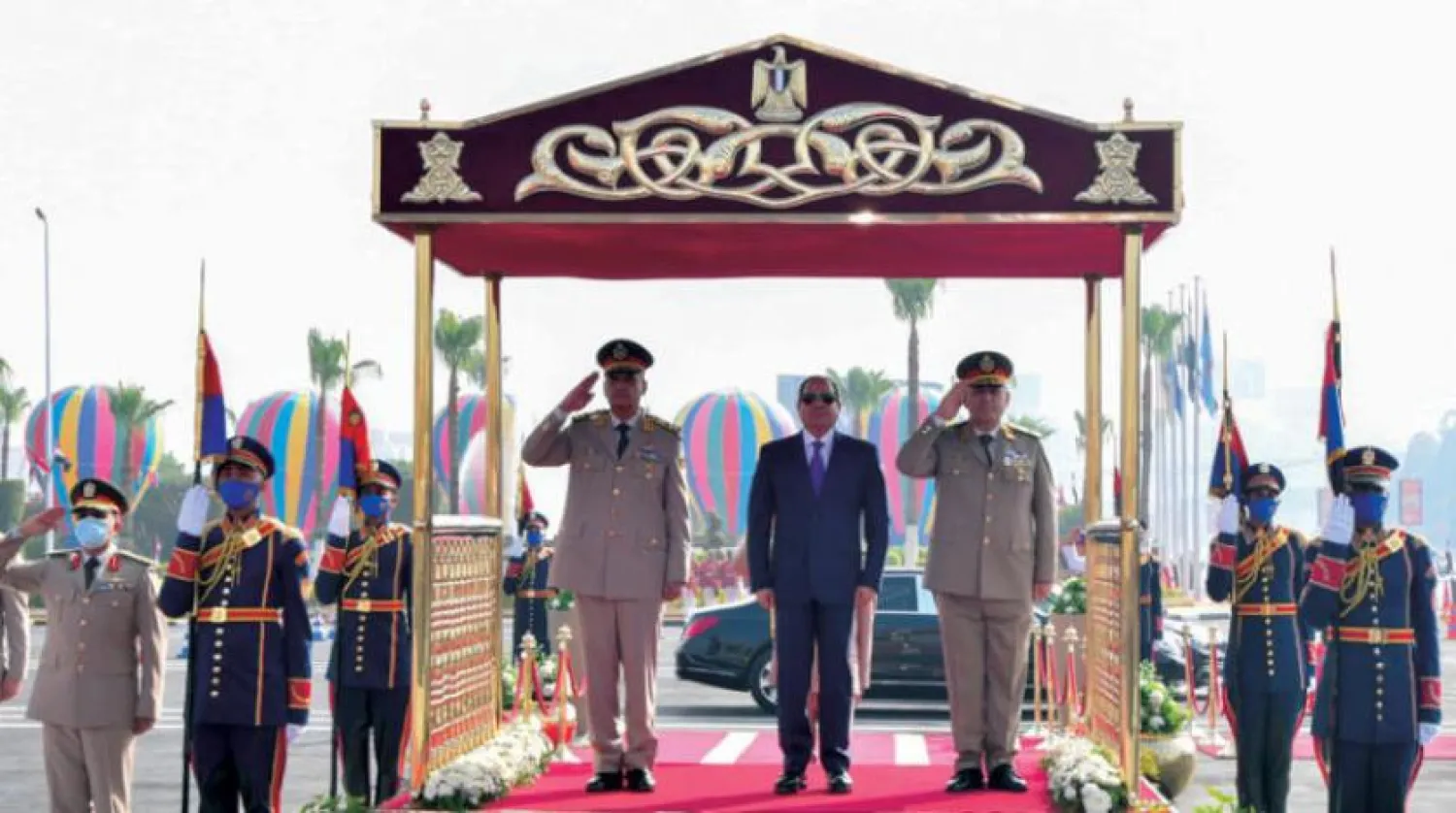Egypt is preparing to celebrate the anniversary of Sinai Liberation Day from Israeli occupation, announcing several security and development achievements.
Egypt celebrates Sinai Liberation Day on April 25 every year to commemorate the completion of the withdrawal of all Israeli military forces from the Sinai Peninsula in 1982.
President Abdel Fattah al-Sisi on Sunday laid a wreath on the Unknown Soldier Memorial in Cairo's district of Nasr City on the occasion.
He was accompanied by Minister of Defense and Military Production Commander-in-Chief of the Armed Forces Lt-Gen Mohammed Zaki and Chief of Staff of the Armed Forces Lt-Gen Osama Askar.
Sisi then paid his respects at the tomb of late President Mohamed Anwar El-Sadat.
The government announced development projects in Sinai, with investments worth billions of Egyptian pounds.
Military spokesman Colonel Arkan Harb Gharib Abdel Hafez said the armed forces had taken it upon themselves to develop the Sinai Peninsula, according to presidential decrees and in cooperation with the concerned authorities.
In televised statements, he stressed that the armed forces have combated terrorism over the years and made sacrifices to restore normal life in Sinai.
He stated that developing and changing the lives of the citizens in Sinai was done as the military was also cracking down on terrorism. The success has been attested in international reports.
Abdel Hafez referred to a UN report that touched on the state's strategy in combating terrorism on the security, social, and development levels.
He noted that controlling the border is one of the most critical issues of interest to any country, especially Egypt.
The spokesman said the region suffers from instability, adding that border guards played a significant role in securing Sinai.
He stressed that achieving security and stability guarantees the development process and preserves Egypt's interests.
Meanwhile, the cabinet's press office issued a report on Sunday announcing state efforts to develop Sinai.
The report outlined a comprehensive plan to achieve development on the peninsula, including massive national projects in different fields.
It reviewed ventures to connect Egypt's eastern gate with the Delta region to make Sinai, together with the Canal cities, a natural extension of the Nile Valley.
The Sinai and Canal Cities development plan includes investments worth over EGP700 billion.
The projects in the Sinai Peninsula and Canal cities will be developed over eight years.
Minister of Higher Education and Scientific Research, Khaled Abdel Ghaffar, stated that Egypt will implement 37 projects in higher education in Sinai, worth EGP13 billion.
He revealed that the King Salman International University comes at the forefront of the national projects for higher education in Sinai, at EGP10.5 billion.









